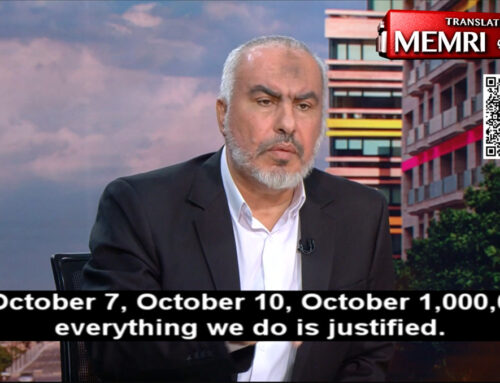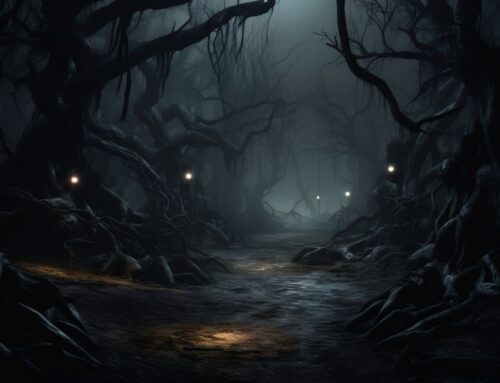The Remnant: An Alarming Doctrine
Part II
by A.W. Tozer
From his book “Reclaiming Christianity: A Call to Authentic Faith”
The Tranquilized Church
The first offer from the Lord is not tranquility at all. The Lord at first offers us deliverance, forgiveness, renewal and making things right; and following that comes tranquility. But we are marketing tranquility now, selling it like soap, and asking our people in the name of John 3: 16 to come get tranquilized. And so we have a tranquilized Church that is enjoying herself immensely at banquets and times of fun and coffee-klatches and fellowships. Then she is singing about the Lord, “Thy Word is like a garden, Lord.”
I only call attention to it because there is a danger that we make the Word of God to be something to give us tranquility. The wings of the churches, the ones that are left open all day in the busy sections, you will find people come in and sit down. They do it, as the poet said, “To invite their souls and call in their thoughts of home and abroad and get still.”
Businessmen and advertising men do that, and mystics from India and from Burma do that. That is not necessarily a Christian thing. It is a good thing, but it is not enough. We gear our services to tranquillize people and paralyze them. We ought to be alarmed by this doctrine of the remnant. We ought not to allow ourselves to take ourselves for granted. We ought to be alarmed about it.
Paul was troubled about this and wrote, “But I keep under my body, and bring it into subjection: lest that by any means, when I have preached to others, I myself should be a castaway” (1 Corinthians 9:27). I have known preachers that preached a lifetime and ended up telling dirty stories – ending up being dirty, filthy old men. It is entirely possible for us to teach Bible school and be board members and sing in choirs and take part in church services and then finally find out that we are castaways and have never been of the remnant at all. That is an alarming thing, but I do not apologize for alarming you. I am afraid that we are not alarmed enough. We ought to be disturbed about this, for it is summed up in the text, “Though the number of the children of Israel be as the sands of the sea, a remnant shall be saved” (Romans 9:27).
There were a few old friends of God during Jesus’ time, but when we think that the population of Jerusalem alone at the time of the Passover was a million, and that at Pentecost there were also a million people in that city but only 3,000 were converted, we say, “What a vast harvest that was.” Well, 3,000 out of 1 million is not a vast harvest, in my opinion.
I wonder if there has ever been a time when there was a vast harvest. I know it was said of Scottish missionary John G. Paton (1824-1907) that he went to the New Hebrides and found not a Christian; and when he left, there was not a heathen. But I have always crossed my fingers when I read that statement because it is not according to the doctrine of the remnant. For the doctrine of the remnant is “though the number of the religious people should be as the sands of the sea, only a remnant shall be saved.” It is not that they could not be, it is that God does not want them to be, it is just that they are not.
When Christ came, there were shepherds and wise men. And we hear about these friends of God, we are glad for them. But the point is, they were typically a small percentage of the whole.
Well then, at the second coming of Jesus, He says, “And because iniquity shall abound, the love of many shall wax cold” (Matthew 24:12). It does not say the love of many only, but every student of the Greek will tell the same thing. There is an article, a positive definite article in there: “the.” The specific ability to love shall wax cold.
And Jesus said, “Nevertheless, when the Son of man cometh, shall he find faith on the earth?” (Luke 18:8). He did not say that He will not find faith, but He said, “Shall he find faith on the earth?” So at the second coming of Christ, it will be as it was in the days of Noah; and in those days, Noah, the eighth person, was saved by water, by the ark. The rest of the population drowned.
If you still want more support for the doctrine, read Church history. A small fragment, a surviving trace, always kept the faith while the others took things for granted.
Known by Their Fruit
Do you know what is wrong with us as a church today? We are taking ourselves for granted. We are assuming that which may not be true at all; that which is founded upon wishful hoping and not upon sound Biblical experience in many cases. We have not been disturbed enough. We have not allowed God to plow furrows on our backs. We have not dared go before God and have the examination made. We have been afraid of what God will find, and we would rather wait. Therefore, we have waited and settled down. There has always been a small remnant, and they have been in the midst of all the rest. A million might wish with their lips and worship with their lips, but only a small fragment truly worship in their hearts in a way that honors and pleases God.
We do not need to imagine it is an indication of vast spirituality or high degree of holiness when we see a church door open and multitudes spew out on the sidewalk. Follow them home. Follow them half a block and see how they live. That is the way to tell. “Wherefore by their fruits ye shall know them” (Matthew 7:20).
Ask them to lead in prayer. Announce a prayer meeting and see how they will leave. Announce a banquet and see how they will come. In the church of God, the “stop and go” signs are these: When it says go, “banquet”; when it says stop, “prayer meeting.” The church of God follows it, and we smile about it, but it is an alarming thing. I do not want to come before the Lord having soothed and petted people into some false sense of smug spiritual security.
Read Church history and see the fragments, or the remnant, that lived in the midst of it all. Read about the Waldensians and the Friends of God and the Brethren of the Common Life and how few there were but how many went to church. It is possible to worship God with our lips and not worship God with our lives. If your life does not worship God, your lips do not worship God either.
I am troubled about all the people I see singing Handel’s Messiah, especially during Easter season, without having the remotest notion of what it is about. They will stand up and sing, “Come unto Him, come unto Him,” and they will not have any idea of what it means. When Handel wrote it he said, “When I was through, me thought I saw heaven open and all the angels of God gathered.” That is how he felt. But many of us sing it and only enjoy it as music. We can come, sing hymns in church and only enjoy the dignity of the music as a relief from rock ‘n roll.
Read about the remnant 600 years before Christ was born in Ezekiel 9:1-6. We say, “Begin in the Kremlin, O God; begin in the Kremlin and destroy those godless wretches.” God says, “Begin at my sanctuary.”
We say, “Go down to the corner where men in half-lighted rooms sit and slurp beer; go down there, oh ye with the destroying weapon in your hand.” God says, Begin at the steps of my church, Begin with my sanctuary.”
We say, “Go to the church where the pastor denies the Bible and has nothing to preach but poetry.” God says, “Begin at my sanctuary.”
But He says, “look out, watch for the mark on the forehead.” That indelible mark. He sent the man with the linen with an inkhorn, indelible ink, and said, “Go mark them, mark them.”
“Which ones will I mark? The ones that stand and pray the longest? The ones that give the most to missions?”
“No, no,” He says, “that is not the test. Here is the test in a day of corruption: those who sigh and cry for all the abominations that are coming in the midst of Jerusalem.”
that is all that they have to do. Some things are like a wave of the sea. You can stand, and Paul himself could not shout it back,, for it would engulf him. But you do not have to get the mark of the remnant on your forehead, you do not have to succeed, and you do not have to be popular. You only have to sigh and cry for the abominations that are taking place in the earth today.
I cannot stop people from doing what they are doing, but at least I can grieve because they will not stop; and I am going to do that. I am going to let my tears water the footsteps of those who go astray. And when the churches will not come back to the New Testament standards and worship the Lord our God in the beauty of holiness, if I cannot make them do it or persuade them to do it in this awful hour of crisis, at least I can weep because they will not come. And I can sigh if I cannot weep.
I do not know what the future holds. But I know one thing: rather than betray the sheep of God, rather than lie to them and deceive them and keep them agitated and stirred up with all kinds of popular topics; rather than take my material from Time magazine, I’ll preach the Word to empty seats and sigh and cry for the abomination that is in the earth.
So God says, “Begin at my sanctuary. Then they began at the men which were before the house” (Ezekiel 9:6). Sounds like these young people are the trouble. These young people are filled with lust and wild ideas; but the Scripture says, begin with the ancient men, which are before the house. “These old bearded pillars of the church,” says the Holy Spirit, begin with them. “And it came to pass, while they were slaying them, and I was left, that I fell upon my face, and cried, and said, Ah Lord GOD! Wilt thou destroy all the residue of Israel in thy pouring out of thy fury upon Jerusalem?” (Ezekiel 9:8).
If the evangelical Church, the fundamentalist believing Church, will not accept this, then I can at least sigh because they will not, and cry to God because they do not.
~~~~~~~~~~~~~~~~~~~~~~~~
~~~~~~~~~~~~~~~~~~~~~~~~
Fully Surrendered
By Alfred C. Snead (1884-1961)
Fully surrendered – Lord I am Thine;
Fully surrendered, Saviour divine!
Live Thou thy life in me;
All fullness dwells in Thee;
Not I, but Christ in me,
Christ all in all.









Leave a Reply, please --- thank you.